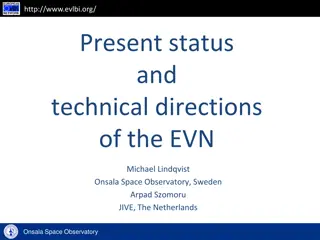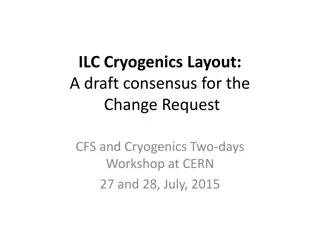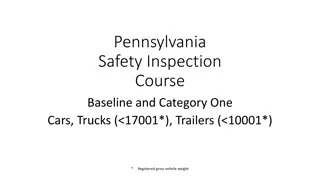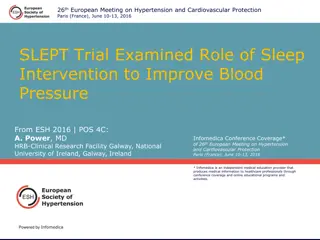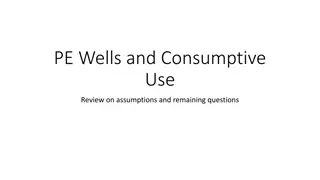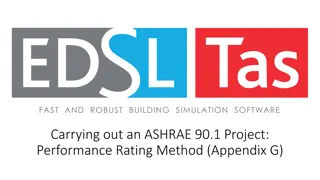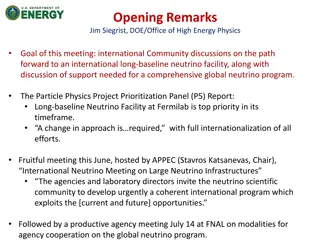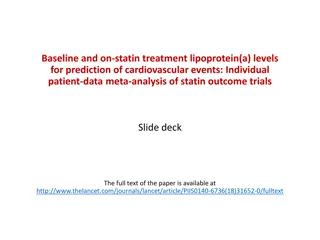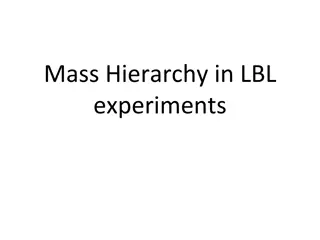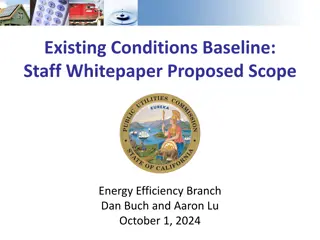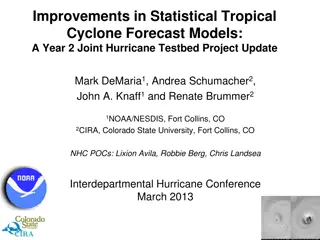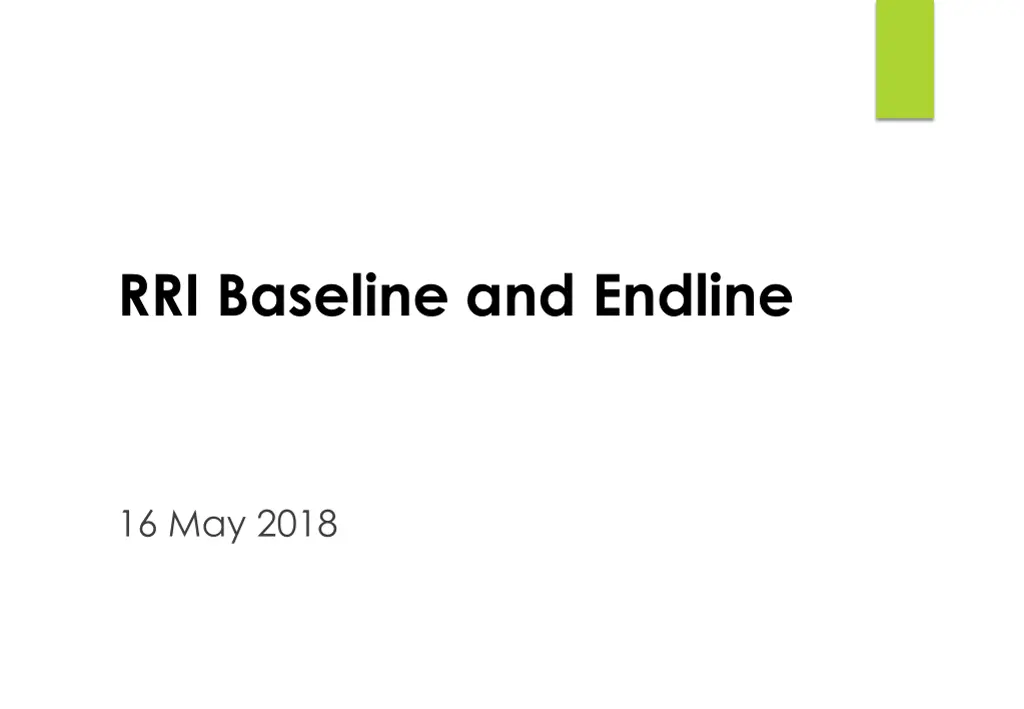
Enhancing Capacity of Red Cross Societies
Reconstructing and validating baseline data for outcome indicators, collecting end-line data, and gathering qualitative information on progress towards outcomes. Extensive methodologies including desk reviews, surveys, interviews, field trips, and case studies. Key workshops highlighting Gender and Diversity outcomes. Main findings include increased capacity and knowledge sharing among Southeast Asia Red Cross National Societies through regional networks and training initiatives.
Download Presentation

Please find below an Image/Link to download the presentation.
The content on the website is provided AS IS for your information and personal use only. It may not be sold, licensed, or shared on other websites without obtaining consent from the author. If you encounter any issues during the download, it is possible that the publisher has removed the file from their server.
You are allowed to download the files provided on this website for personal or commercial use, subject to the condition that they are used lawfully. All files are the property of their respective owners.
The content on the website is provided AS IS for your information and personal use only. It may not be sold, licensed, or shared on other websites without obtaining consent from the author.
E N D
Presentation Transcript
RRI Baseline and Endline 16 May 2018
Objective and Approach 1. Reconstruct and validate baseline data for outcome indicators. 2. Collect end-line data using the same methodologies as the baseline. 3. Gather qualitative information on progress towards outcomes through a collection of change stories.
Method Extensive desk review Four online surveys NS, IFRC, NDMO and external partners (36/42) 56 key informant interviews Field trips to Myanmar and the Lao PDR Case study methodology (16 cases developed) Replication and validation of baseline Endline creation Higher collaboration with ASEAN achievements. weighting/effort afforded to Gender & Diversity and
Method Two key workshops: Gender and Diversity Technical Review Workshop (21- 22 November 2017) to highlight G&D outcomes and contributions secured through the RRI. Lessons Learned Workshop (21-23 February 2018) - key lessons related to the most significant RRI outcomes for use in future contexts; and identifying how RRI contributions could be broadened/up-scaled to the wider humanitarian system.
Outcome: Increased capacity of SEA Red Cross National Societies RRI s regional-wide peer-to-peer support cooperation and subsequent sharing of knowledge, learning and technical support resulted in four key regional networks: Annual Southeast Asia Leadership meeting Community Safety and Resilience Forum Southeast Asia Youth Network RCRC Gender and Diversity Network
Outcome: Increased capacity of SEA Red Cross National Societies An important facet of the cross learning and knowledge sharing has been: the production of the many RRI change stories and case studies. the public awareness and public education materials. shared community voices .
Outcome: Increased capacity of SEA Red Cross National Societies The RRI trained some 1181 individuals (52% female) in important resilience building skills: 612 people in G&D related topics. 146 on climate change. 57 as part of the ASEAN Coordinating Centre for Humanitarian Assistance on Disaster Management programme. 366 people in communications and advocacy themes.
Outcome: Increased integration of gender equality Direct RRI G&D Technical Assistance resulted in a total of 66 significant G&D interventions, including: 32 trainings. 26 technical support events to NS. 8 technical support functions to IFRC s external partners.
Outcome: Increased integration of gender equality Gender and Diversity capacity building support contributed to: 6 NS completing G&D institutional policies and/or strategies. 7 NS contextualizing G&D tools based on the IFRC s inclusive VCAs and Minimum Standard Commitments tools. 3 NS conducting institutional G&D self- assessments.
Outcome: Increased integration of gender equality The RRI s G&D work had previously been identified as stand out during the 2016 M&E consultancy . . . and this continued to be the case when the endline report concluded.
Outcome: Partnership building The most notable has been the partnership with ASEAN, specifically the ASEAN Secretariat and the AHA Centre. The RRI undertook 13 initiatives with the ASEAN Secretariat: 10 on disaster management and 3 on health. Plus an additional 10 initiatives with the AHA Centre and 6 ACDM initiatives.
Outcome: Partnership building RRI s progressively grew, notably with the ASEAN School Safety Initiative (ASSI) and the following UN agencies: UN Women UNISDR UNFPA UNOCHA UNDP significantly in the progression of SEA Disaster Law initiatives partnership with key organisations
Outcome: Increased DRR cooperation between partners Indicator 2: Enhanced regional RCRC partnerships with DRR organisations Partnership dimension comparison 2014-2017 120 100 80 60 40 20 0 1 2 3 4 5 6 7 8 9 10 11 12 13 2014 2017 29% overall improvement rating between 2014 and 2017
Outcome: Partnership building The RRI contributed enormously to the establishment and strengthening of new disaster law legislative instruments. Significantly, in 2017 the Initiative led the first mapping of disaster law and the institutionalization of the ASEAN Agreement on Disaster Management & Emergency Response (AADMER) into national laws with endorsement of the ACDM and partnership with ASEAN Secretariat.
Overall Conclusion The RRI encouraged governments and other stakeholders to increase their engagement with at-risk communities, local leaders and civil society in efforts to reduce risks and strengthen resilience. The status and role of National Societies as auxiliaries to government in humanitarian crises and development has been reinforced by the RRI s direct interventions. The RRI made a significant contribution to strengthening disaster risk reduction resiliency in Southeast Asia and contributed to the overall ASEAN goal of reducing the impact of natural disasters on vulnerable communities.
Recommendations 1. Future Programme Implementation Plans (PIP) should be more accessible to National Societies and other partners. 2. Develop a robust monitoring framework that accounts for issues of (i) RRI s attribution , and (ii) National Society contribution to outcomes. 3. Better plan and illustrate the Initiative s link with communities (and subsequently the direct contribution made to increased resilience of vulnerable communities).





